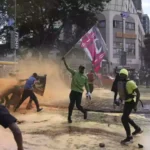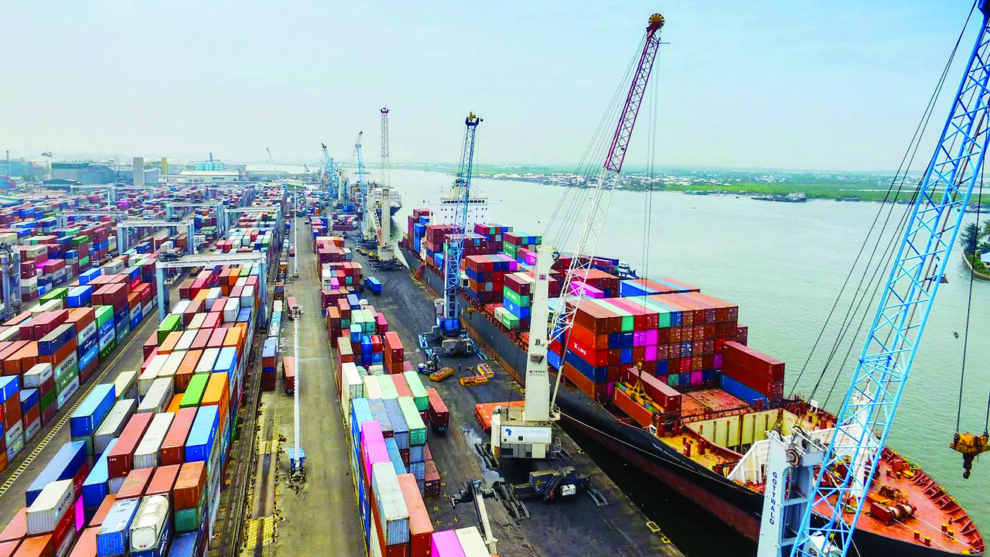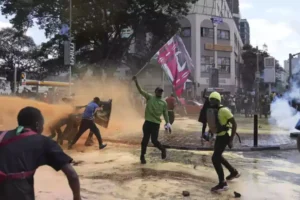Eight years after President Muhammadu Buhari promised to incentivise investment in the Nigerian maritime sector, including ports, and scale up the infrastructure to global standards, the sector continues to bear the brunt of abandonment and poor funding.
From road networks to modern facilities, ports in Nigeria, the largest economy in Africa, have taken the back seat, behind Togolese, Ghanaian and Beninoise ports.
Nigerian ports are reputed to be one of the most expensive, and somewhat, inefficient in the West and Central African sub-region, making the ports unattractive to importers, who prefer diverting Nigeria-bound cargoes to more efficient ports in the region, thereby, affecting the nation’s revenue generation and cargo throughput.
This was due to issues with dilapidated port infrastructure, long cargo dwell time, poor vessel turnaround time, a long clearing process and port congestion, resulting from traffic gridlock within the port corridor.
Figures gleaned from the Budget Office suggest that the Federal Government’s direct budgetary allocation to the port facilities in the past eight years was a paltry N1.7 billion – a figure experts have dismissed as a drop in the ocean when compared with the investment needs of ports across the country.
Government hid under its concessionning arrangement to evade fresh capital injection, but the concessionaires have not done much better, analyses reviewed by The Guardian and figures obtained from insider sources have indicated.
Sources close to the operators of Apapa and Onne ports informed The Guardian that the two important ports have received a little above $2 billion in funding from investors in the past 17 years, putting the average yearly spending outlay at about $117 million. This figure is a far cry from the attention competitive ports along the West Coast have received.
A few years ago, for instance, Tema Port, Ghana, received $1.5 billion in facility upgrade. After years of neglect, industry stakeholders say, Nigeria would have to double up or triple investments in port facilities to match what its rivals in the sub-region have done in recent years.
In the run-up to 2015 election, President Buhari, who has less than two months to leave office, promised to “enact new legal and regulatory frameworks to establish independent regulation and incentives to accelerate public and private sector investment in seaports, railways and inland waterways.”
Subsequently, he promised a shift of attention that would see some of the ports upgraded and new facilities provided to make the country a top maritime hub in Africa.
As his eight-year administration winds down, the promises are yet to materialise. Evacuating cargoes remains a major challenge, as the major ports are still not connected by rail, while tankers have blocked access roads to Apapa and Tincan ports.
At the moment, only three ports – Apapa and Tin Can in Lagos State and Onne in Rivers State – are the most viable by volume of imports handled, although still bereft of global standards.
The two completed river ports, namely: Baro in Niger State and Onitsha in Anambra State, are yet to operate optimally.
The N2.5 billion Baro port, after its commissioning, has not functioned. It currently lies idle because the access road has not been fixed.
For the N4.6 billion Onitsha port, it is still not working optimally because of the inadequate depth, concession row and years of litigation.
The Onitsha port has been concessioned and handed over to Universal Elysium Consortium for 30 years, with the Federal Government targeting N23 billion as revenue. Ports in Delta State – Warri, Koko, Burutu and Sapele, are also not working at their optimal best.
Specifically, Warri Port is witnessing light activities and below 30 per cent of its expected capacity. Issues of the shallow draft have made it near difficult for vessels to access the port.
Sapele Port has been taken over by the Nigerian Navy Engineering College, while Koko and Burutu ports have concession problems and are currently disused.
Group Managing Director and Chief Executive Officer of Widescope International Group, Dr. Segun Musa, rated the efficiency of the ports under President Buhari’s administration as 25 per cent.
He said there has been no improvement in port infrastructure, adding that just about 10 to 15 per cent value has been added to the corridor of the ports in eight years.
Source : The Guardian
















